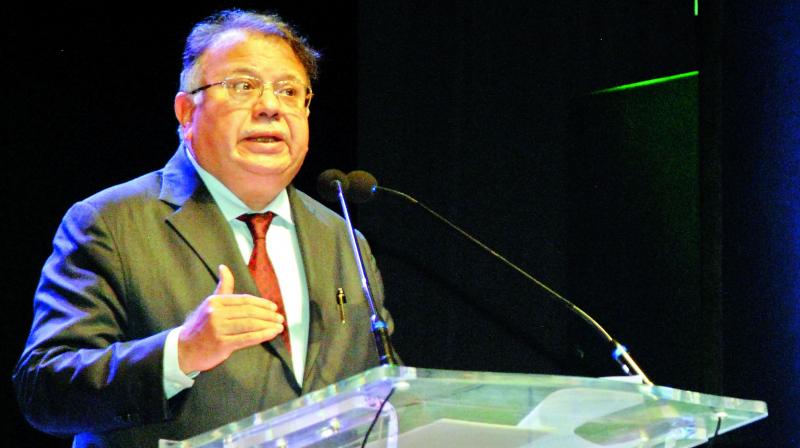No peace until Islam is made equal, says Ajit Prakash Shah
Dissent is being curbed. Sloganeering is becoming a test of patriotism.

Hyderabad: Setting the ball rolling for the annual Manthan Samvad conclave in the city on Tuesday, retired Chief Justice of the Delhi High Court, Ajit Prakash Shah, known for his bold judgements, declared scathingly, “The Republic of Intolerance that India has turned into in the last few years reflects and confirms to us our collective psychological malady, where we have lost sensitivity to the pain of our fellow citizens, and have become numb to the increasing loss of rights as citizens.”
Tracing the roots of intolerance to the Sangh Parivar, Justice Shah confessed that his own roots were seeped in saffron: “My grandfather was one of the founding members of the Hindu Mahasabha in pre-Independent India. I grew up reading the poems of Veer Savarkar.”
It is the deep-rooted psyche of the RSS and all its affiliates with their idea of Hindu Rasthra and Akand Bharat, that compels them to view Muslims and Christians as not Indians, he said.
“The recent reconciliatory speech of Mohan Bhagwat is perfunctory. Until the day the RSS declares that Islam and Christianity are equal to Hinduism and other religions born in India, there will be little scope for social harmony.”
The former chairman of the Law Commission of India said that those who lead the mob violence are clearly doing so with impunity, while fear spreads amongst the minorities. The mobile phone and the violent content it brings to you has become a terrorising device, with mob lynchers recording their acts and spreading them.
While the home ministry has recently directed widely publicising the severe punishments that participation and abetment to mob fury can draw, it needs to be seen how sincere the government is in implementing this stated intent, Justice Shah said.
Drawing historic parallels with American lynchings, he said it was the American media which stood up to the actors and perpetrators of social terrorism and turned the mood of the American people and polity against them.
The Indian media has been a big disappointment in this area. “Far from questioning the government on behalf of the people, the media today circulates fake news and questions those who question the government. If the media at large feels compromised, barring a few exceptions, then democracy is in peril. Lynchings have to be condemned by news anchors, not used as ‘masala’ for prime time television,” he said.
Referring to the recent judgement of the Supreme Court directing continued detention at home for activists accused of conspiring against the state and abetting violence, Justice Shah said that the value was is in the dissenting verdict of Justice Chandrachud.
“Dissent is being curbed. Sloganeering is becoming a test of patriotism. When Akhlaq was killed, it wasn’t his body that was sent for post-mortem first. It was the meat which was sent for testing,” he said, pointing out the prejudice in the law and order machinery.
Justice Shah quoted columnists Bhanu Pratap Mehta and Tavleen Singh, saying that while after three years there is no remorse in Dadri over killing a man, the establishment has perfected using lynching as a slow motion form of riots.
“When violence happens in small doses, and regularly, we find it hard to remain angry, and accept it as commonplace. Today, we have to resist.”
The hope for the nation lies in common citizens refusing to accept any deviation of the founding values of the Constitution, Justice Shah concluded.
The one-day event saw nearly 2,000 people register to attend and listen to various speakers, which also included the articulate MP Shashi Tharoor and student leader Kanhaiya Kumar.

